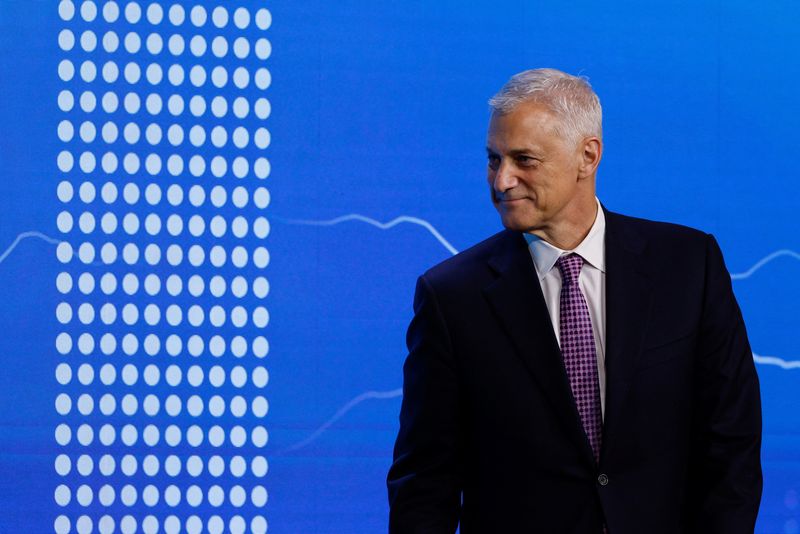By Selena Li
HONG KONG (Reuters) -Standard Chartered Chief Executive Bill Winters said on Friday Credit Suisse (SIX:CSGN) AG's $17 billion Additional Tier 1 bonds wipeout had "profound" implications for global bank regulations.
Winters told a financial forum in Hong Kong the U.S. Federal Reserve move to guarantee non-insured deposits was a "moral hazard".
As part of the deal for UBS Group AG (SIX:UBSG) to take over Credit Suisse, the Swiss regulator determined that Credit Suisse's AT1 bonds with a notional value of $17 billion would be wiped out, a decision that stunned global credit markets and angered many holders.
"I think it had very profound implications for the regulation of banks, and for the way that banks manage themselves," Winters said.
Apart from Credit Suisse takeover, two U.S. banks collapsed in the past two weeks and America's biggest lenders agreed to deposit $30 billion in beleaguered First Republic Bank.
Winters said there appeared to be "non-viable business models remaining, at least in the U.S.", with other banks that had similar deposit concentrations.
The banking chief said the move to guarantee non Federal Deposit Insurance Corporation-insured deposits was the "most wonderful example of moral hazard that we've come across in quite a while."
Following the banking crisis, Standard Chartered (LON:STAN)'s liquidity coverage ratio (LCR), a measure of how much cash-like assets the bank has, is much higher now, Winters said.

The bank had 147% LCR before the bank failures and this was "substantially higher now", Winters said, without disclosing the current level.
"The issue isn't do the regulator's have confidence in our solvency. It's does the market have confidence in our liquidity?"